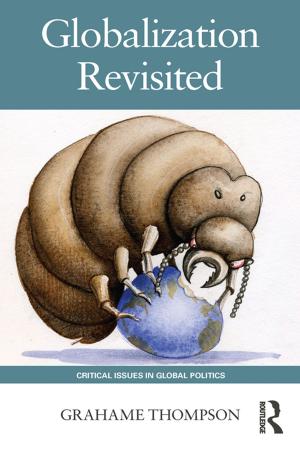Disaster Management in Australia
Government Coordination in a Time of Crisis
Nonfiction, Social & Cultural Studies, Social Science| Author: | George Carayannopoulos | ISBN: | 9781351689915 |
| Publisher: | Taylor and Francis | Publication: | December 15, 2017 |
| Imprint: | Routledge | Language: | English |
| Author: | George Carayannopoulos |
| ISBN: | 9781351689915 |
| Publisher: | Taylor and Francis |
| Publication: | December 15, 2017 |
| Imprint: | Routledge |
| Language: | English |
In recent times the frequency and severity of natural disasters has placed a clear emphasis on the ability of governments to plan, prepare and respond in an effective way. Disaster Management in Australia examines government coordination when faced with large scale crises, outlining the challenges in managing events such as the 2009 Victorian bushfires and 2011 Queensland floods.
The public sector is equipped to deal with policy and service delivery in more routine environments, but crisis management often requires a wider government response where leadership, coordination, social capital, organisational culture and institutions are intertwined in the preparation, response and aftermath of large scale crises.
As crises continue to increase in prevalence and severity, this book provides a tangible framework to conceptualise crisis management which can be utilised by researchers, emergency services and government officials alike.
Disaster Management in Australia is an important contribution to the study of government coordination of crises and, as such, will be of considerable interest to students and scholars of disaster management, and to policy makers and practitioners looking to refine their approach.
In recent times the frequency and severity of natural disasters has placed a clear emphasis on the ability of governments to plan, prepare and respond in an effective way. Disaster Management in Australia examines government coordination when faced with large scale crises, outlining the challenges in managing events such as the 2009 Victorian bushfires and 2011 Queensland floods.
The public sector is equipped to deal with policy and service delivery in more routine environments, but crisis management often requires a wider government response where leadership, coordination, social capital, organisational culture and institutions are intertwined in the preparation, response and aftermath of large scale crises.
As crises continue to increase in prevalence and severity, this book provides a tangible framework to conceptualise crisis management which can be utilised by researchers, emergency services and government officials alike.
Disaster Management in Australia is an important contribution to the study of government coordination of crises and, as such, will be of considerable interest to students and scholars of disaster management, and to policy makers and practitioners looking to refine their approach.















